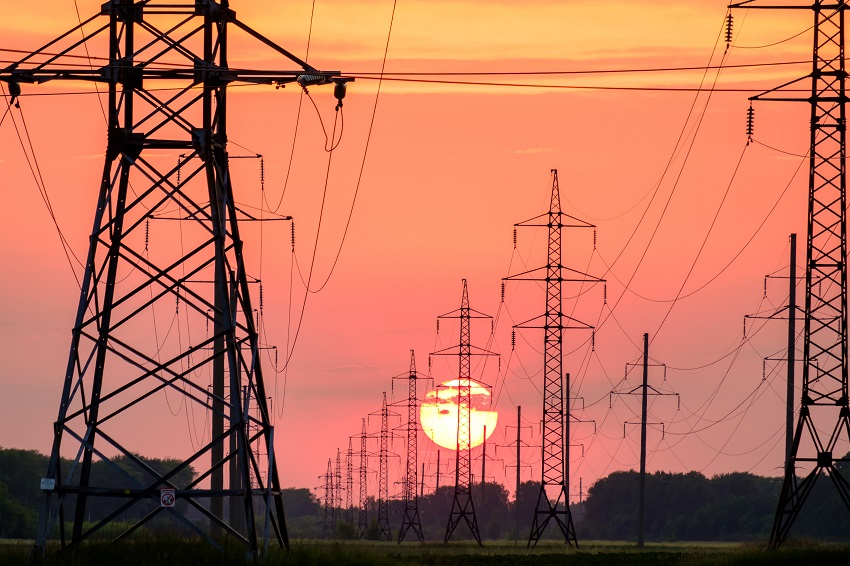
Prudent investing isn’t just about picking the right stocks at the right time. It’s just as much about avoiding the right stocks at the wrong time.
The aggressive rate hikes by both Bank of Canada and the U.S. Fed this year have made bad times for utility stocks. Investors have had to pause and reconsider industries and stocks that are negatively impacted by the tightening of monetary policy. Utility firms can be adversely affected by rising interest rates as it increases their borrowing costs. Not to mention, higher interest rates make bonds more attractive to those investors who tend to favour utilities.
Given that both central banks have indicated they’re not done raising key interest rates as they scramble to arrest spiralling inflation, the following stocks will continue to face headwinds and may warrant a reassessment of their place in your portfolio.
The largest investor-owned U.S. water and wastewater utility, American Water Works (AWK) serves nearly 3.5 million customers across 16 states. The company, which caters to residential, commercial, and industrial customers, operates predominantly in regulated markets. Water services for military bases, the company's only nonregulated business, operate under long-term contracts.
“American Water Works has consistently increased earnings at a low-double-digit pace, topping most regulated electric utilities even though core retail water use has steadily fallen as a result of efficiency savings,” says a Morningstar equity report.
Like its peers, American Water Works is replacing and upgrading old infrastructure, resulting in organic growth. “We also expect the company to grow by acquiring small, typically municipal-owned water systems,” says Morningstar equity analyst, Andrew Bischof, who puts the stock’s fair value at US$132, and forecasts five-year average annual EPS growth in the 7%-9% range.
Earnings growth has been supported by improving regulatory frameworks and increasing operations and maintenance efficiency. Bischof stresses “this level of earnings growth could continue beyond the next five years, given the investment and acquisition opportunities in the water utilities industry.”
However, the company also has robust capital investment plans to the tune of US$14 billion through 2026, which includes plans for up to US$2 billion of municipal water utility acquisitions.
Given the capital borrowing cost could jump in the rising interest rate environment, the increased bill could potentially offset the benefits of growth investments.
“American Water Works' large capital investment plan will require good execution,” says Bischof who warns that “delays or cost overruns could reduce shareholder returns.”
Ameren (AEE) owns rate-regulated generation, transmission, and distribution networks that deliver electricity and natural gas to 2.4 million consumers in Missouri and Illinois. It also serves more than 900,000 natural gas customers.
Illinois and Missouri have been two historically challenging regulatory jurisdictions but are rapidly improving.
The unfavourable “regulatory environment in Missouri historically made it difficult for the company to earn a maintainable spread between earned returns and costs of capital,” says a Morningstar equity report, but adds that “recent improvements in the regulatory environment are changing” that trend.
The regulatory shift in Missouri would enable management to execute its capital plan and earn a fair return on that investment. “This effectively removes the discount for capital investment and earned returns that we previously incorporated,” says Bischof. However, this could change in an environment of aggressive rate increases, which could tick up the cost of borrowing, negating some of the benefits of capital investment.
Currently, the company is pursuing a five-year US$17.3 billion capital investment plan. Beyond that, “Ameren has its sights set on nearly US$21 billion of additional investment opportunities for the following five years, providing a long runway of growth for the company,” argues Bischof, who appraises the stock’s fair value to be US$84.
He cautions, though, Ameren has a significant ongoing development program that is subject to potential cost overruns and political and regulatory risk. Moreover, tightening environmental regulations could require significant capital investment or added operating costs, hampering cost recovery through traditional regulated rates.
One of the largest U.S. utilities, Duke Energy (DUK) provides electricity to approximately 8 million customers. Its natural gas utilities serve more than 1.5 million customers. Duke operates in three major segments: electric utilities and infrastructure; gas utilities and infrastructure; and commercial renewables.
“Florida is Duke's most constructive and attractive jurisdiction, with higher-than-average load growth and best-in-class regulation that allows for higher-than-average returns on equity, forward-looking rates, and automatic base-rate adjustments,” says a Morningstar equity report.
North Carolina is Duke's largest service territory where recent state legislation includes numerous provisions that improve the state's regulatory rate-making. “The legislation allows multiyear rate plans up to three years, including increases for projected capital investments,” says Bischof, who pegs the stock’s fair value at US$101, and forecasts 5%-7% growth, supported by “Duke's pipeline of growth opportunities, continued management of operating expenses, and constructive regulatory outcomes.”
Duke will invest US$63 billion over the next five years in its regulated utilities, and the firm will continue to benefit from constructive regulatory rate increases to support its investment, he adds.
Increased interest rates could impact the firm’s cost of borrowing since the company has a significant development program. Further, the program could be “subject to potential cost overruns and political and regulatory risk,” cautions Bischof, who asserts that “tightening environmental compliance regulations could require significant capital investment or added operating costs that may have uncertain cost recovery through traditional regulated rates.”






















